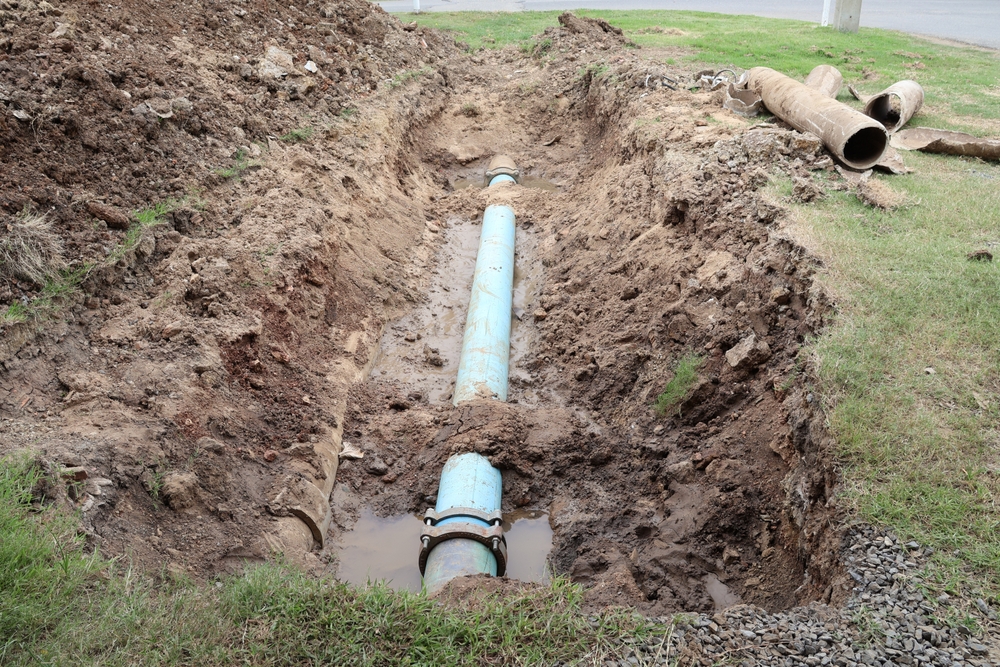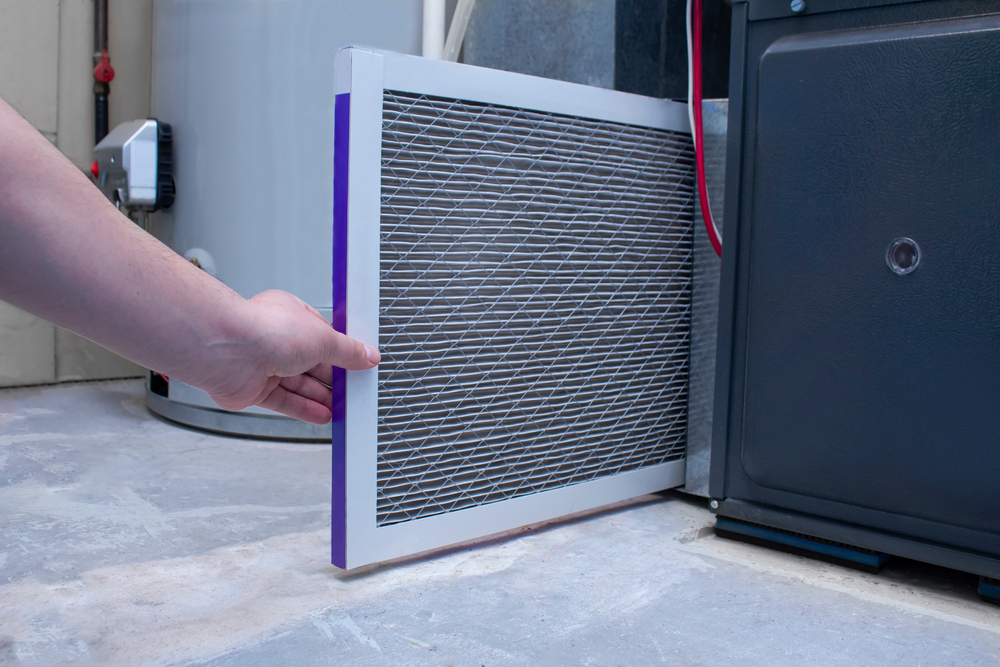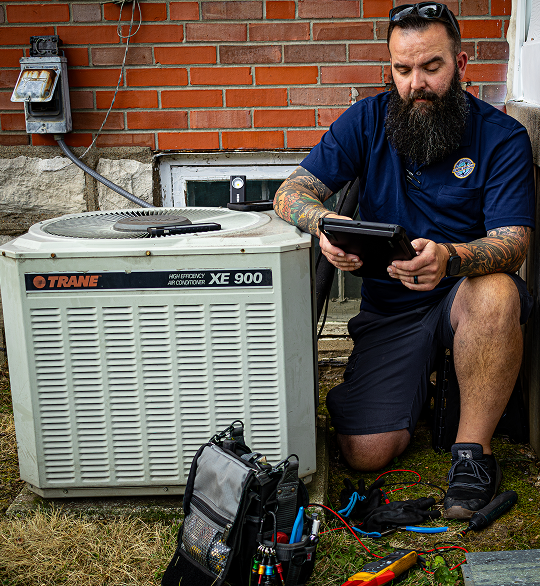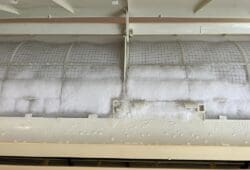
Ice buildup on an air conditioning unit can cause serious issues, leading to non-functionality and costly repairs. This is a common problem for even the best brands and at any time of year, even the summer. It affects the compressor, impairing airflow, and can result in severe damage if left alone. To prevent your AC unit from freezing up, it is essential to address the issue right away and protect yourself from potential issues.
Signs That Your AC Is Freezing Up
Summer heat can stress an air conditioner, potentially freezing it if the evaporator coils get too cold. To prevent freezing, ensure regular maintenance and inspection of the air conditioner. Below are a few common signs that your AC may be freezing up:
- Reduced airflow from vents
- Visible ice on the outdoor unit or refrigerant lines
- AC is running constantly but not cooling effectively
- Water leakage around the indoor unit
- Unusual noises from the AC system
Why Does My AC Keep Freezing Up?
When an evaporator coil is not functioning properly, the refrigerant cools too much, drops below freezing, and ices over. This causes an air conditioner to freeze. Figuring out the root cause of this freezing is vital for identifying and fixing the problem. There are a variety of reasons why an AC unit can freeze during the summer:
Low Refrigerant Levels
The summertime freezing of an air conditioner can be caused by low refrigerant levels. A specific amount of refrigerant is needed for the unit to operate at its peak. Low refrigerant levels can throw off the needed balance, and this causes your AC unit to freeze. Low refrigerant levels are indicated by frozen coils, which need to be fixed right away. Expert specialists are capable of assessing and replenishing the refrigerant in the cooling system. Frozen coils left unchecked can result in more damage and lower home energy efficiency.
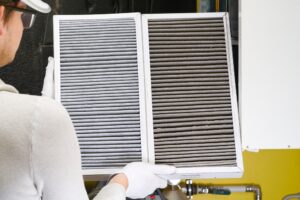
Dirty Air Filters
One of the main causes of frozen air conditioners and other issues is a dirty air filter. To keep moisture from collecting on the coils of an air conditioner and freezing, there must be a continuous flow of air. If this balance of airflow is disrupted, your systems may freeze as a result. For this reason, you should replace the filters in your system once every three months.
Blocked or Closed Vents
Air conditioning units can freeze during the summer due to dirt buildup in filters and vents. Dirty filters can accumulate dust, while allergen-filled pet dander and lint can line vents. If not cleaned and vacuumed regularly, these particles can overload the system, leading to freezing.
Faulty Blower Fan
A blower fan circulates the cool air around the house and draws warm air into the ductwork. However, if the blower fan is broken or stops working, this heat transfer process may come to an abrupt end. A malfunctioning blower fan can cause an excessive amount of condensation to accumulate on the coils. If there is not enough airflow, the refrigerant line and coils could freeze over. You may need a blower fan replacement or repair if you are experiencing a lower blower fan speed, an inability to start the air conditioner, a continuous humming noise, or a sharp dip in the amount of warm air released outside
Thermostat Issues
Your air conditioner might not be able to move heat from the interior to the outside effectively if the temperature is set too low. Similar to this, a low fan speed might put too much strain on your unit and make it difficult for it to maintain the desired temperature. To maintain the required airflow, the fan speed should be increased on particularly hot days.
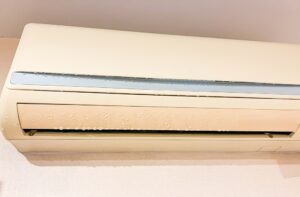
Drainage Problems
The condensate drain line in an air conditioning system collects and drains water generated by the cooling system, preventing it from escaping or flowing back into the home. However, it can back up with moisture, potentially causing harm if clogged with dirt, mold, or other materials. It’s recommended to have the drain line checked annually by a qualified specialist to clear any obstructions and fix any damage. This helps maintain airflow and prevents future issues like frozen coils.
Outdoor Temperature is Too Low for Cooling
Your AC can potentially freeze on cool summer nights because it’s designed to operate within a set of temperature thresholds. The refrigerant gets too cold on nights below the ideal threshold, freezing any moisture in the air before it has a chance to circulate evenly.
What to Do When Your AC Unit Freezes Up
When an air conditioner freezes, it’s easy to end up with a more serious issue if it is frozen long enough. Here are some steps you can take to troubleshoot your frozen AC unit:
- Turn off the AC to allow it to thaw.
- Check and replace any dirty air filters.
- Open and unblock all of the vents.
- Inspect and clean the evaporator coils if they are accessible.
- Make sure the thermostat is set correctly.
- Check for and remove any blockages in the drain line.
- Call a professional if the issue persists.

How to Prevent an Air Conditioner From Freezing Up
You might be able to manage an air conditioner freezing up yourself if you detect it early enough and do the following tasks:
- Regularly replace your air filters.
- Schedule annual maintenance checks.
- Keep your vents open and unblocked.
- Monitor the refrigerant levels.
- Confirm the thermostat settings are set properly.
- Clean the evaporator coil periodically.
- Keep the outdoor unit free of debris.
Contact Classic Aire Care for AC Issues
Frozen AC coils can cause significant issues in an air conditioning unit. A problem in any of its connected parts can lead to serious problems, especially in the summer when a chunk of ice sits on the system. By doing some of your own troubleshooting and performing regular maintenance, you can help make sure your household stays cool and comfortable during the summer months. But even that may not fix the root of the problem.
For persistent problems that are still around after your own troubleshooting, give the professionals at Classic Aire Care a call. We can handle any air conditioning issues you may have, including maintenance, repairs, and emergency services.


